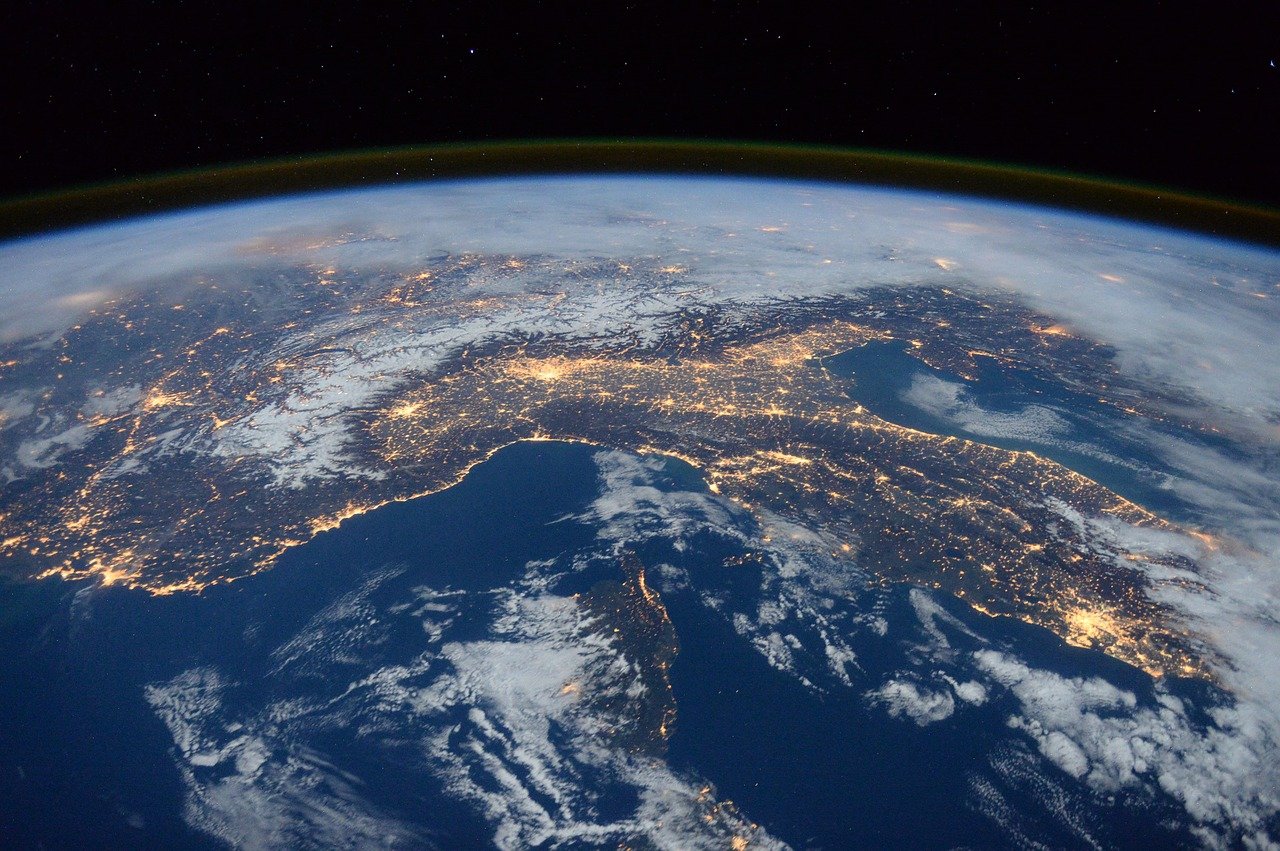
ΑΙhub.org
Space and artificial intelligence – an online conference

On 4 September 2020 an online conference on the topic of space and artificial intelligence took place. The event was organised by CLAIRE and the European Space Agency (ESA) in association with ECAI2020. The program included five keynote talks, a panel discussion, and 17 contributed presentations on topics concerning different AI methods and different areas of space technology, including space operations and earth observation.
The five keynotes provided an excellent summary of some of the recent and ongoing exciting work in the field.
Kiri Wagstaff talked about machine learning for space and planetary exploration. In the past spacecraft collected data and sent it back without examining the contents. Today we are in a position where machine learning algorithms and data analysis methods allow spacecraft to assess the data and its contents prior to transmission, so that the most interesting or valuable observations are sent back first. Methods have also been developed for novelty detection to explore the unknown, like the surface of Jupiter’s moon Europa.
Alessandro Donati gave a presentation on the European Space Agency (ESA), providing the audience with a comprehensive overview of ESA’s vision for AI, of the ESA core activities with AI and of the identified AI domains and technologies of relevance for space. The agency has been applying AI since the early 2000s, with the technology initially being used in the areas of telemetry based diagnostics and operations planning. Since then, AI has been adopted far more widely.
Xiaoxiang Zhu spoke about using AI for Earth observation, specifically using geoinformation derived from Earth observation satellite data. Such data is vital for many scientific, governmental and planning tasks. In her talk, Xiaoxiang showed how explorative signal processing and machine learning algorithms can significantly improve information retrieval from remote sensing data. For example, combining Earth observation data with machine learning algorithms it is now possible to tackle the enormous challenge of mapping global urbanization.
Lucien Rapp gave an overview of AI in space in the age of deep industrial transformation. The environment of space is particularly challenging for researchers as environments are hostile and autonomous craft must be able to carry out tasks without being aided by control stations. One possible future challenge he highlighted was the impact on space research of the COVID pandemic.
James Parr talked about AI, space data and the promise of improved planetary stewardship. We now have the unprecedented opportunity to monitor, predict and simulate our planet in near real-time. This has been enabled by two developments; firstly the emergence of high-resolution, high-temporal and hyper-spectral geospatial data and secondly, the emergence of cloud computing and democratised AI infrastructure. James presented some of the opportunities these developments have presented, including the capability to predict tornadoes and droughts, and dynamic applications, such as near-real-time flood segmentation, bushfire mitigation and post-disaster damage assessment.
Recordings of the 17 contributed presentations, listed below, are available for anyone to watch (although you will need to sign up for an underline account first).
- Galaxai: machine learning for spacecraft operations, Matej Petković
- Onboard and ground-based automated scheduling for the mars 2020 rover mission, Steve Chien
- Using flexible execution, replanning, and model parameter updates to address environmental uncertainty for a planetary lander, Daniel Wang
- Rover teleoperation through machine coaching, Loizos Michael
- Artificial intelligence powered chatbot for the astronauts, Anitha S Pillai
- Extending the autonomy envelope of space applications: a research path, Angelo Oddi
- Aitlas: a toolbox of ai methods tailored for earth observation data, Ivica Dimitrovski
- Transcoding-based self-supervised learning for semantic segmentation of polsar imagery, Ronny Hänsch
- Scalable big data and deep learning techniques for copernicus data, Manolis Koubarakis
- Combination of AI, semi-physical models, and in-situ data for earth observation applications, Mirta Pinilla
- Role of machine learning techniques for spatial interpolation of environmental variables, Chorapalli Jayendra Praveen Kumar
- Clustering geo-data cubes, Raul Zurita-Milla
- Cloud removal from satellite multispectral images using multispectral edge-filtered conditional generative adversarial networks, Andrzej Mizera
- Separating stars from quasars: machine learning investigation using photometric data, Snehanshu Saha
- Machine learning in heliophysical applications: the example of unsupervised solar wind classification, Jorge Amaya
- Aida: ai data analysis with application to the detection and prediction of space events, Giovanni Lapenta
- A deep learning approach to space weather proxy forecasting for orbital prediction, Emma Stevenson
Visit the event webpage for more information.










